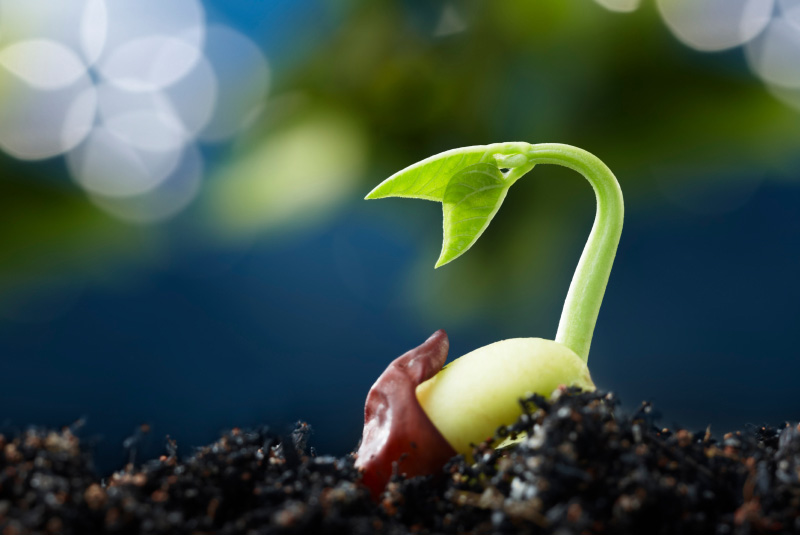Sustainability – The ability to be maintained at a certain rate or level
Above is the most basic definition of sustainability, but to the professional landscaper it’s so much more. Sustainability consists of fulfilling the needs of current generations without compromising the needs of future generations, all while ensuring a balance between economic growth, environmental care and social well-being. It’s also about shouldering the heavy burden of responsibility when it comes to your family, friends, work partners, future generations and life as we now know it on this tiny blue planet. We are all equally responsible!
Even after 37 years in the Green Industry, John Huber still considers himself a student . It’s what he loves the most about the industry. Everything is temporary. We must adapt to survive, just as weeds, insects and diseases adapt. The environment and our climate changes. New trends, discoveries and technologies are developing every day. If we have no desire to learn, then we will fall behind and ultimately fail. The same goes for your business. The way to ensure your success and well-being in the industry, is to always be willing to learn and adapt with the industry. If not, then this will lead to failure and misery. You’re either a productive member of society or you’re a pirate in the race to the bottom. For a subject that’s this hyper critical, there is no grey area.
To be a thriving member of the professional landscape industry, you must be a business man or woman first and a scientist second. Everything you know about soil, plant health, cultural practices and solutions came to you through dedicated study, real-world observations and mistakes that were made along the way. All of these things are directly tied to sustainable lawn and landscape care. It’s all about balance.
Soils need balance on three levels. Structurally, biologically and chemically. With complete balance you can achieve optimal plant health which saves you time, money and aggravation. With the extra time, you can focus more on growing your business and prioritizing the most important elements of your life, i.e., your health and your family. With the extra money, you can afford to increase employee salaries that ensure consistency, invest in growing your business, increase your retirement savings, take a hard-earned vacation and so much more. Last but not least, a completely balanced soil is the foundation of sustainability. Sustainability equals profitability.
There are endless amounts of articles, books, newsletters, marketing materials, etc. on lawn and landscape health that all start with the soil. All of those gurus are correct. The journey to soil health begins with a complete soil test and evaluation. Be sure to select tests that provide a breakdown of the soil structure, the percentage of viable organic carbon vs, organic matter, plant nutrients and recommendations. The reason you need specifics on the organic aspect of the soil is, almost all soils contain organic matter. The majority of which is fats, waxes, lignin and cellulose. These common forms of organic matter are not viable, meaning, the living soil biomass will not see it as a food source. Beneficial microbes require a steady diet of sugars, starches and other carbohydrates, as well as proteins. Viable carbon is second only to oxygen when it comes to soil health.
A visual evaluation of the soil profile along with the results of the soil tests will point you in the right direction. The incorporation of viable organic matter will solve most soil issues. Always do your best to source organic carbon from recycled materials. These recycled materials are from waste that would otherwise be land-filled or incinerated. Our waste is a monumental threat to water quality. The current disposal programs we employ for waste are outdated and broken. Many of these waste materials are less expensive than most, common soil amendments and contain a broad spectrum of the 16 essential plant nutrients for plant health. This equates to exponential value at a lower cost, and it’s a sustainable solution than can have a positive impact on health, the environment, the economy and most importantly, your bank account.
The benefits of a sustainably established and maintained soil are countless.
- Reduces costly fertility and chemical requirements.
- Reduces costly service calls
- Reduces water requirements.
- Reduces labor costs.
- Reduces equipment maintenance needs.
- Simplifies your programs and the need for way too many products.
- Supports optimal efficiency for nutrient conversion and plant uptake
- Creates an oxygen rich environment. (The most important element for plant health).
- Reduces surge growth.
- Provides disease suppression and resistance.
- Differentiates you from your competition, enabling you to sell on value rather than price.
- Provides you with one of the most powerful marketing tools in the industry at no additional cost
Better Value, Better Solutions, Better Environment!
All of this can be overwhelming, but help is just around the corner. At Central Turf & Irrigation Supply, we stock and provide the full range of Hudson Valley Natural products and solutions, along with a support team of subject matter experts that are the best in the industry. We are here to help you grow your business sustainably. We keep it simple so you don’t have to stress.
About John Huber
John is in his thirty seventh year in the Green Industry. John began his career as a greenhouse grower and spent 15 years guiding his own turf management company in southeastern Virginia using cutting-edge organic based technologies.
For the past 18 years, John has been involved in fertilizer manufacturing, formulation, supply chain and logistics, helping thousands of professional turf companies across the United States grow their business, increase the quality of their services and streamline their programs for optimal efficiency.

